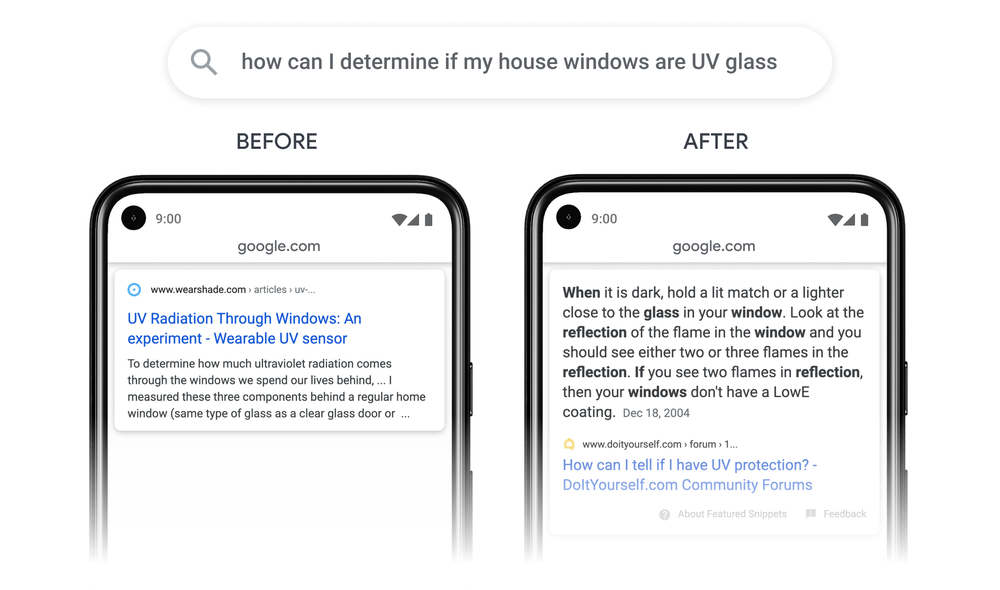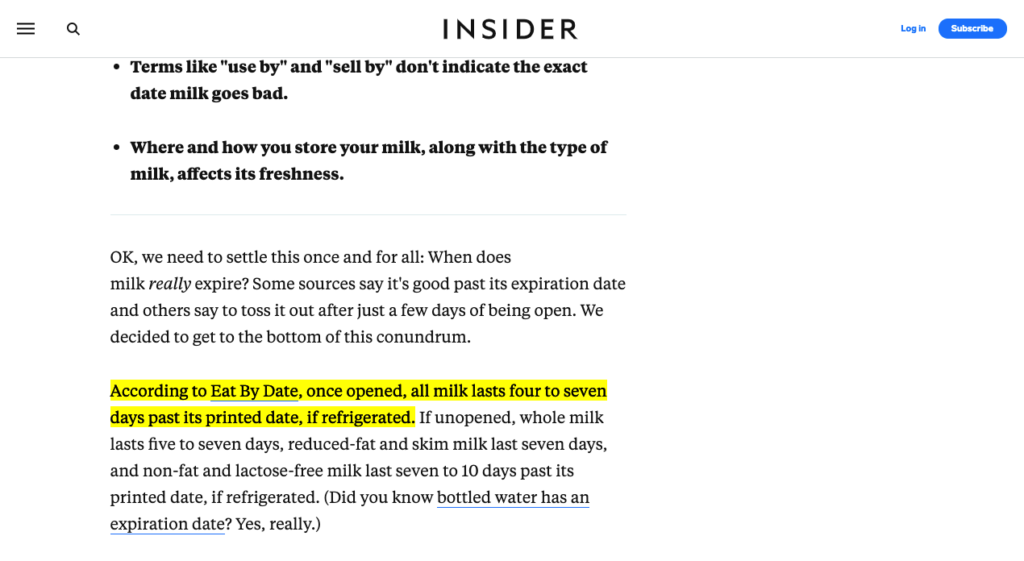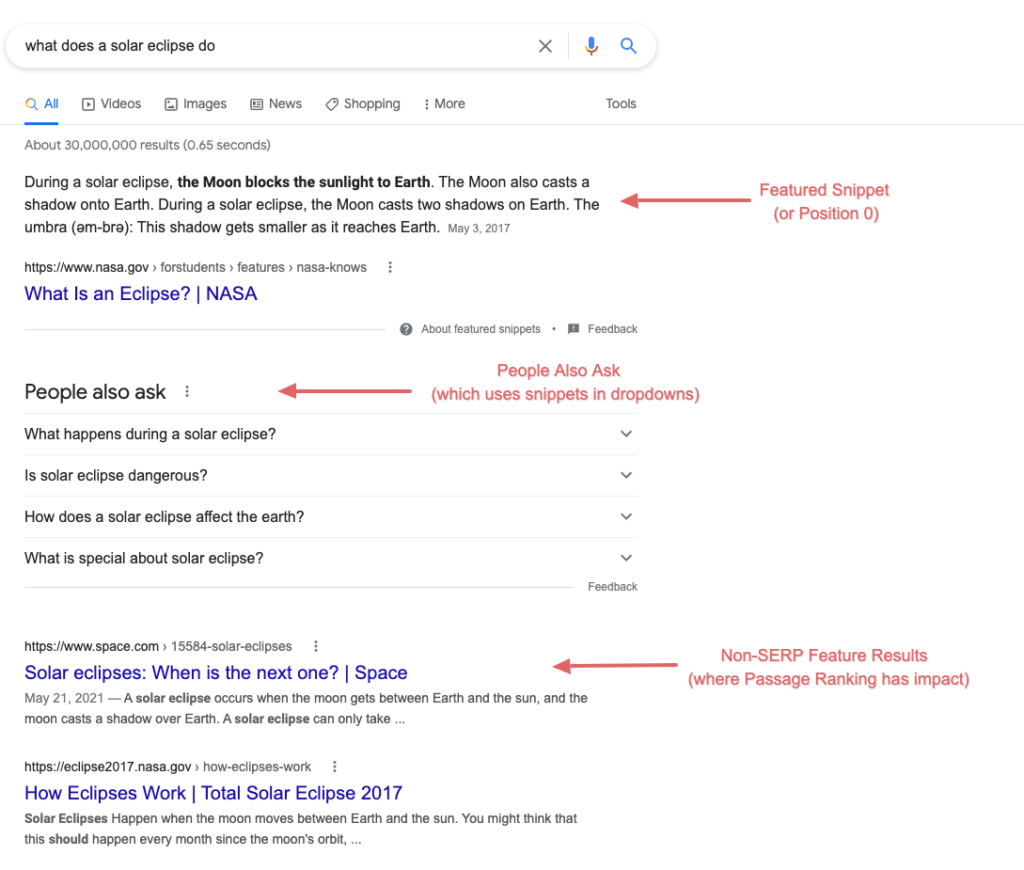In late 2020, Google announced an algorithm ranking update called Google Passage Ranking. As frequently happens with announcements from Google, digital marketers instantly began discussing ways they could use the change for search engine rank gain. But does Google Passage Ranking actually allow for that? Now that the update has had some time to settle, we wanted to take a closer look at what exactly Google Passage Ranking is, how it works, and whether or not it actually has any SEO impact for marketers.
- What Is Google Passage Ranking?
- How Does Google Passage Ranking Work?
- What’s the Difference Between Passage Ranking & Featured Snippets?
- How Do I Know If I Have a Passage Ranking?
- Will Google Passage Ranking Impact SEO?
- How Do I Optimize for Google Passage Ranking?

What Is Google Passage Ranking?
Originally referred to as “passage indexing,” Google Passage Ranking is an algorithm ranking change. In other words, Google is tweaking its own search engine algorithm to better answer search queries for its users.
Similar to its BERT language processing update back in 2019, the Google Passage algorithm update is another way for Google AI to better understand the context of information on a webpage, thereby allowing Google to identify specific sections of text within a page that answer a search query more directly.

Google shared in its October 2020 announcement: “Very specific searches can be the hardest to get right, since sometimes the single sentence that answers your question might be buried deep in a webpage. We’ve recently made a breakthrough in ranking and are now able to better understand the relevancy of specific passages. By understanding passages in addition to the relevancy of the overall page, we can find that needle-in-a-haystack information you’re looking for.”
Google said that this algorithm update in no way changed how website content is indexed—hence the switch in terminology usage from “passage indexing” to “passage ranking” to avoid confusion.
How Does Google Passage Ranking Work?
It’s important to acknowledge that Google Passage Ranking doesn’t change how search engine results pages (SERPs) function for users. At least, not in an obvious sense. This update only changed how Google AI understands webpage content and information in terms of relevancy for a given search query.
Here’s essentially what that means—Google can now locate a highly specific sentence, paragraph, or section of content within a webpage that answers a long-tail keyword or question. It then understands that it can show that webpage in results for that keyword or question, even if the page itself isn’t wholly relevant to the query.
So let’s say you searched something like “When does milk go bad?” You’re clearly looking for an answer that tells you how many days after the sell-by date you can use your milk. In the past, Google would only pull webpages into its results that were considered topically relevant from top to bottom. Now, however, webpages that are topic adjacent but that answer the question more precisely can make their way into the results.
Interestingly, there’s an additional feature tied to Google Passages that Google Chrome users might notice when conducting searches through Google. After submitting your search query, if you click on one of the webpage links on the first page of results, there’s a good chance it may be a jump (or anchor) link that takes you down to a highlighted section of content that Google believes answers your query.

Keep in mind that the Passage Ranking update doesn’t mean you can “game the system” with SEO content. It’s just that Google is now more equipped to find passages that answer its users’ questions better. All in all, this ranking change was intended to improve the search engine algorithm for the benefit of Google users.
What’s the Difference Between Passage Ranking & Featured Snippets?
Though both Passage Ranking and Featured Snippets allow Google to provide better answers for its users, they are different features. Passage Ranking is an internal algorithm change meant to further Google AI understanding of contextual information and when that information should be shown in search results. Featured Snippets (also called Position 0) is a SERP feature intended to provide instant answers and assist in voice search use, which Danny Sullivan, Google’s Public Liaison for Search, clarified in a tweet last year.
The easiest way to understand this is that Featured Snippets are shown in Position 0, as well as in People Also Ask boxes, whereas the Passage Ranking update will impact non-SERP feature organic results.

What’s still not clear from the information Google has released about Google Passage Ranking is whether it could overlap with the Featured Snippets system. After all, if both systems are looking for the best possible answer to a question in a search query, it’s possible that they could come up with the same result. This will be something to keep an eye on as Google continues to change and test its algorithm features.
How Do I Know If I Have a Passage Ranking?
Though Google Passage Ranking is an internal algorithm change, which means it’s not something you can actively optimize for, there is a way you can see if a Google user has come across a specific passage within a webpage on your site. Try filtering your Google Search Console reports for any URLs containing /#:~:text=
With #PassageRanking having launched yesterday, I noticed an interesting increase in URLs containing “#:~:text=” for English queries in the US. No clicks so far + can’t find a live example in the SERPs b/c seems to be used only on a small fraction of searches (yet). Exciting 🙂 pic.twitter.com/dQIIt85fsl
— Marcus Tandler ✰ (@mediadonis) February 12, 2021
Something to note with these jump links is that the URL code following /#:~:text= will change based on the search query. So you could have hundreds or thousands of unique URLs pointing to passages on your site because of search term variances. That said, if you notice any webpages consistently getting jump links to specific passages, this should tell you that you’ve provided good answers to common questions—and it might even inform your content marketing strategy going forward.
Will Google Passage Ranking Impact SEO?
Outside of what Google has told us about this update and how it works, Google Passage Ranking doesn’t seem to have an apparent impact on how webpages rank in SERPs.
According to Martin Splitt with Google’s Developer Relations team, Google Passages is not intended as a way for content marketers and digital publishers to optimize content and rank better in SERPs. It’s merely a way for Google to identify relevant sections of content within a long-form page or post to help its own searchers find answers.
“You don’t need to make any changes to your website. You don’t need to make changes to any of your pages, to any of your articles, or to your markup…It’s just us getting better at more granularly understanding the content of a page, and being able to score different parts of a page independently,” Splitt said in a conversation with Search Engine Journal.
Of course, that doesn’t mean SEO implications are totally off the table. As we’ve seen before, some algorithm tests and tweaks intended to improve the search experience for Google users can lead to large-scale changes that impact how we approach content and SEO. For example, the Mobile-First Index started out as a split between desktop and mobile results in 2016, and now mobile-first is the standard.
The biggest thing we can understand from everything Splitt shared about Google Passages is that content marketers who are already strategically structuring content are on the right track. That is, if you’re creating content that answers questions and you’re utilizing organizational elements like header tags and anchor links, then you’re essentially doing what Google is trying to do—make answers easier to find.
How Do I Optimize for Google Passage Ranking?
You can’t technically write or optimize content for Google Passages. Remember, Google Passage Ranking is what Google considers an internal algorithm update, which means it’s something they came up with to fine-tune their search engine results for a better user experience. Again, you can’t “game the system.”
Now, we also know that just because Google says you can’t optimize for something directly doesn’t mean that the SEO strategies and tactics we use won’t eventually align with changes that could follow Passage Ranking. Knowing what we know about what Google is looking for at the moment, here’s what you can do to keep up with changes to the algorithm and Google rank:
- Create high-quality website content that answers questions
- Optimize your content around relevant keywords
- Utilize proper header tag formatting and schema markup
If you’re doing all of these things already as part of your SEO content marketing efforts, then you’re probably performing well in organic search results as it is. This also means you’re more likely to benefit from changes associated with Google Passages. Beyond that, we’ll have to wait and see what Google comes up with next.
Want to put together a digital marketing plan that combines search engine optimization and content marketing? Hurrdat Marketing offers content marketing services and SEO services that can help. Contact us today!



